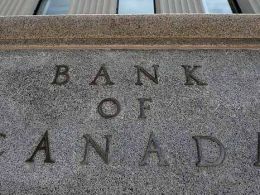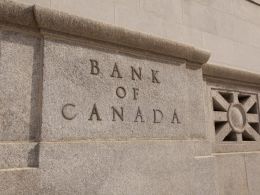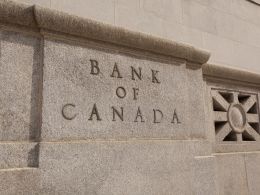
Bank of Canada Paper: Bitcoin Adoption Could Stabilize Price
The central bank of Canada has published a new working paper that suggests its researchers believe digital currency exchange rates will become less volatile should adoption increase. Penned by researchers Wilko Bolt (of the central bank of The Netherlands) and Maarten RC van Oordt (of the Bank of Canada’s Financial Stability Department), the paper offers a possible "economic framework" for exchange rate analysis. Published on 18th August, it further represents the latest work from a major central bank, following growing interest from this segment of the financial community in....
Related News
The Bank of Canada has released a report that uses a prediction model to predict volatility of bitcoin and other digital currencies. Read more... Researchers from the Bank of Canada have developed a model to predict the volatility of cryptocurrencies like Bitcoin and other altcoins. The adoption of Bitcoin and other digital currencies has been slower than expected. The volatile nature of Bitcoin is one of the reasons for slower adoption. People are worried about the possibility of a downward fluctuation, which may result in huge losses. While it is necessary to rein in Bitcoin’s volatility....
The Bank of Canada has joined the list of bank-related institutions to commission research papers regarding the use of digital currencies, particularly Bitcoin. Its two authors came up with an economic framework to analyze their exchange rates. Blockchain as a challenge for central banks. The Bank of England had earlier released a research paper that studied the macroeconomic consequences of issuing central bank digital currency (CBDC). The 2015 paper by the Bank for International Settlements noted that the emergence of distributed ledger technology could present a hypothetical challenge....
As virtual currencies like bitcoin become more established, the exchange rate will be less affected by speculator perceptions, according to a staff working paper [PDF] on the value of virtual currencies written for the Bank of Canada by Wilko Bolt of the Netherlands Bank and Maarten R.C. van Oort of the Bank of Canada. Over time, excessive exchange rate volatility will not undermine virtual currency use. The 40-page paper’s aim is to determine what drives the value of virtual currencies like bitcoin, which the paper underlines as the mostwell-known virtual currency. Much of the paper....
How would a bitcoin standard fare for a monetary system? An analysis by the Bank of Canada examined that scenario, conjecturing how a bitcoin standard would perform based on the performance of a gold standard that existed from 1880 to 1913. The gold standard was a monetary system in which nations’ currencies were tied to gold. The 37-page paper [PDF] is written by Warren E. Weber, research consultant at the Bank of Canada, visiting scholar for the Federal Reserve Bank of Atlanta, and adjunct professor at the University of South Carolina. The paper claims that because....
A research consultant for Canada's central bank has published a new research paper that envisions a world that has established a monetary standard based on bitcoin. The outcome, speculates author Warren Weber, would be a mix of good and bad in terms of impact on monetary policy. Weber writes: “A bitcoin standard would have two major benefits over current fiat money standards. One is that there would be greater price-level predictability due to the known, deterministic rate at which new bitcoins are created. A second is that the resources currently devoted to hedging against fluctuations in....





